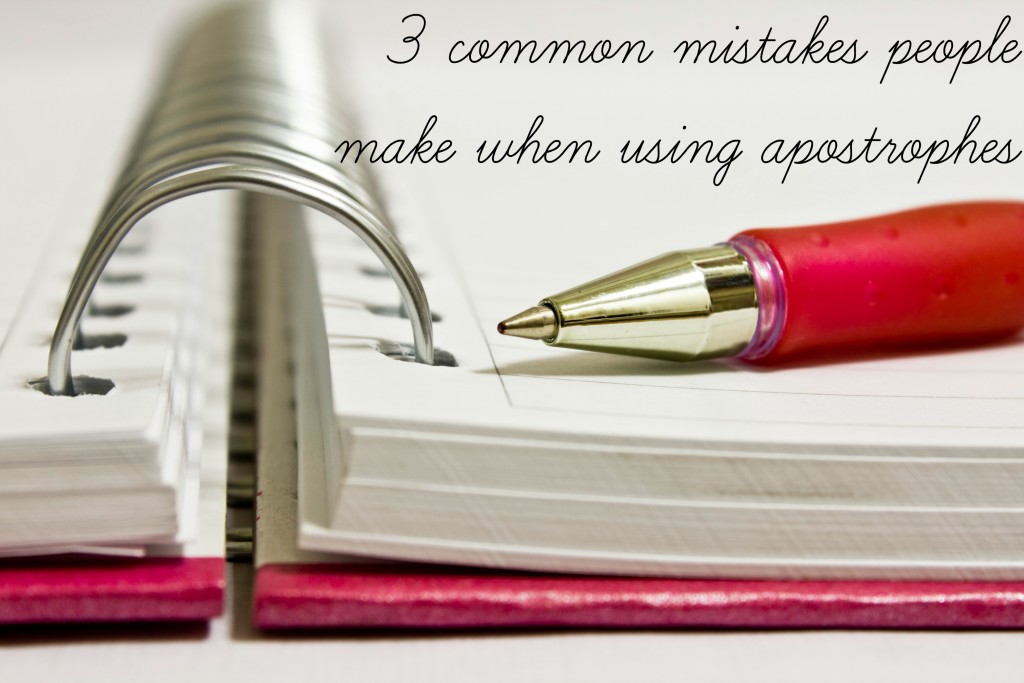As Fritinancy pointed out in the comments section of Punctuation matters! Three tips for using commas, I made a mistake in my placement of an apostrophe. This blog is just as much a way for me to learn as it is for you, so I think it’s about time we brush up on our punctuation skills with regards to apostrophes.
For some reason apostrophes are one of the most common mistakes that writers of any kind make. Here are the basic issues that most people have:
1. Possession. If a thing belongs to someone, write the apostrophe before the “s.” For example: Sally‘s roof leaks when it rains. When a name already ends in an “s,” just add the apostrophe to the end of the word, after the “s.” For example: James’ car was bright red. The rule is the same for groups, and this is where I went wrong in my previous post. For groups of things—such as peoples—the apostrophe should be placed before the “s.” To correct my mistake from the Comma article: include people‘s names.
2. Making short forms. We tend to write in as short of form as possible for easier reading, and that means that words get cut down. In these situations, an apostrophe indicates that a letter is missing. We are becomes we’re; will not becomes won’t; who is becomes who’s.
3. It’s vs. Its. Just as with the rule above, the apostrophe in it’s shows that a letter is missing. It’s stands for it is or it has. On the other hand, the apostrophe-less its can be thought of as the words his or hers. When we use its, that means that something belongs to “it.”
A word of caution
Don’t use an apostrophe for plurals! The word bananas does not need an apostrophe.
Use an apostrophe if you are doing something (you’re), but don’t use an apostrophe if something is yours. Similarly, the use of an apostrophe to string words together can be applied when we consider the various forms of there, their, and they’re: only use the apostrophe when they are doing something (they’re)—not if it belongs to them (their) or if someone is standing over there.
So why use it?
Apostrophes are very useful for shortening a piece of writing. Because of this, they are most commonly used in informal pieces. They are fairly simple to use as long as you just take a moment to think about what you’re writing and the meaning that you intend to convey.

Though I’m FAR from perfect when it comes to grammar, it’s kind of a pet peeve of mine (the former teacher in me!). One thing that bothers me is when people use apostrophes with days of the week. Like, “Monday’s are the worst!”
There is actually a sign on a restaurant near me that says, “Free drinks on Monday’s!” REALLY?! 🙂
Holly- it’s really amazing how many signs are written incorrectly like that. We definitely do not pay as much attention to things like spelling, grammar, and punctuation as we ought to these days!
[…] Write the apostrophe before the “s” if a thing belongs to someone. Check out an example and learn two more common problems people have with apostrophes by reading Three Common Mistakes People Make with Apostrophes. […]